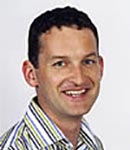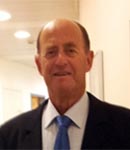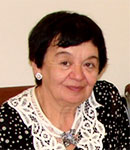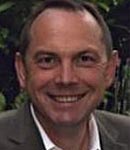Invited lectures
 Dr. Giselher Grabenweger
Dr. Giselher Grabenweger
Agroscope
giselher.grabenweger@agroscope.admin.ch
Giselher Grabenweger is entomologist at the Research Station Agroscope Reckenholz-Tänikon ART, Zurich, Switzerland. He is responsible for Biological Control in grasslands and arable crops. He has 15 years of experience in field experiments and project-related entomological research. His main interest is the diagnosis, monitoring and management of pest insects, especially their control by natural antagonists, e.g. hymenopteran parasitoids, entomoparasitic nematodes or entomopathogenic fungi.
Giselher Grabenweger started his scientific carrier with his Master's (1998) and PhD (2003) in Zoology at the University of Vienna, Austria, with research on invasive alien species. Main topic was the horse chestnut leafminer, Cameraria ohridella and its biological control with hymenopteran parasitoids. In the course of these studies he was participating in one EU-funded project within the 5th Framework Programme ("CONTROCAM"). After three years as a research assistant at the University of Natural Resources and Applied Life Sciences in Vienna (2001-2004) and two years at the University of Applied Sciences in Berlin (2005 – 2006) he got a position as an agricultural entomologist at the Institute of Plant Health of the Austrian Agency for Health and Food Safety (AGES). During five years at AGES (2007-2011), he focussed on the management of quarantine pest insects in arable crops, especially the control of western corn rootworm, Diabrotica virgifera virgifera, with entomoparasitic nematodes. At ART (since March 2012) he works on the control of wireworms with entomopathogenic fungi, as part of another EU-Project funded within the 7th Framework Programme ("INBIOSOIL").
His employment at AGES gave him the opportunity to join IOBC WPRS. Since then, he was participating in the IWGO-meetings in Vienna (2006), Munich (2009) and Freiburg (2011) and in meetings of the WGs "Pheromones and other semiochemicals in integrated production" (Lund, 2007) and "Insect pathogens and entomoparasitic nematodes" (Cardiff, 2010, Innsbruck, 2011). In January 2010, he joined the IOBC WPRS council as a deputy member and was assigned liaison officer for the WGs mentioned above.













